Indigenous Governance Database
self-governance
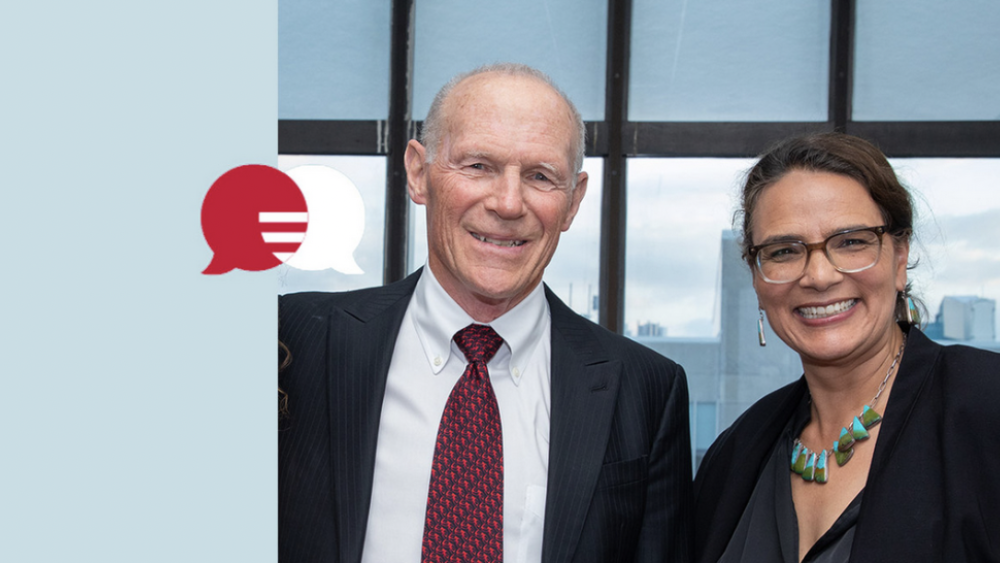
The More Indigenous Nations Self Govern, The More They Succeed
Harvard Kennedy School Professor Joseph Kalt and senior director Director Megan Minoka Hill say the evidence is in: When Native nations make their own decisions about what development approaches to take, studies show they consistently out-perform external decision makers like the U.S. Department of…
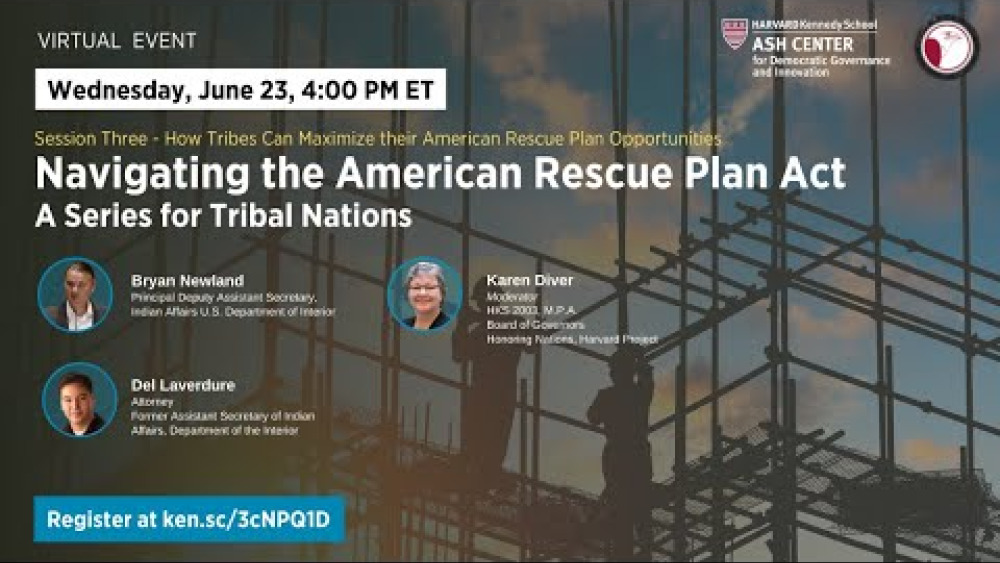
Navigating the ARPA: A Series for Tribal Nations. Episode 3: A Conversation with Bryan Newland - How Tribes Can Maximize their American Rescue Plan Opportunities
From setting tribal priorities, to building infrastructure, to managing and sustaining projects, the American Rescue Plan Act (ARPA) presents an unprecedented opportunity for the 574 federally recognized tribal nations to use their rights of sovereignty and self-government to strengthen their…

Jim Gray: Making Change Happen
Former Principal Chief James Gray of the Osage Nation makes a guest speaker appearance to the January In Tucson class “Making Change Happen”. In Chief Gray’s own words, he shares his direct experiences with indigenous governance for the Osage people and gives a larger context to the historic…
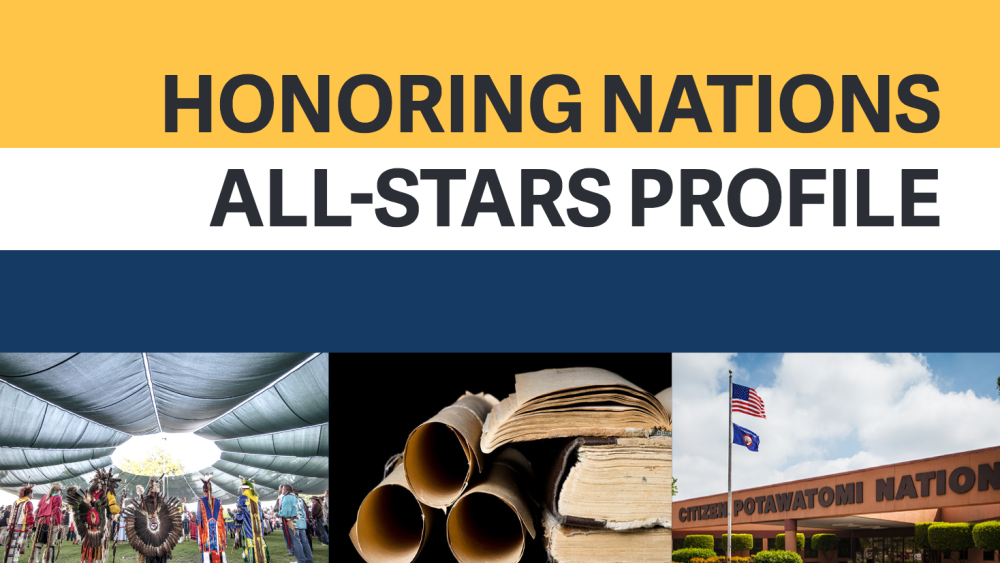
Honoring Nations All-Stars Profile: Constitutional Reform Citizen Potawatomi Nation
Forced relocations, loss of lands, and the economic necessity of moving away from home and community are common histories in Indian Country. Yet, despite these tragic circumstances, tribes continue to assert their sovereignty in order to improve the lives of their people. One of these remarkable…
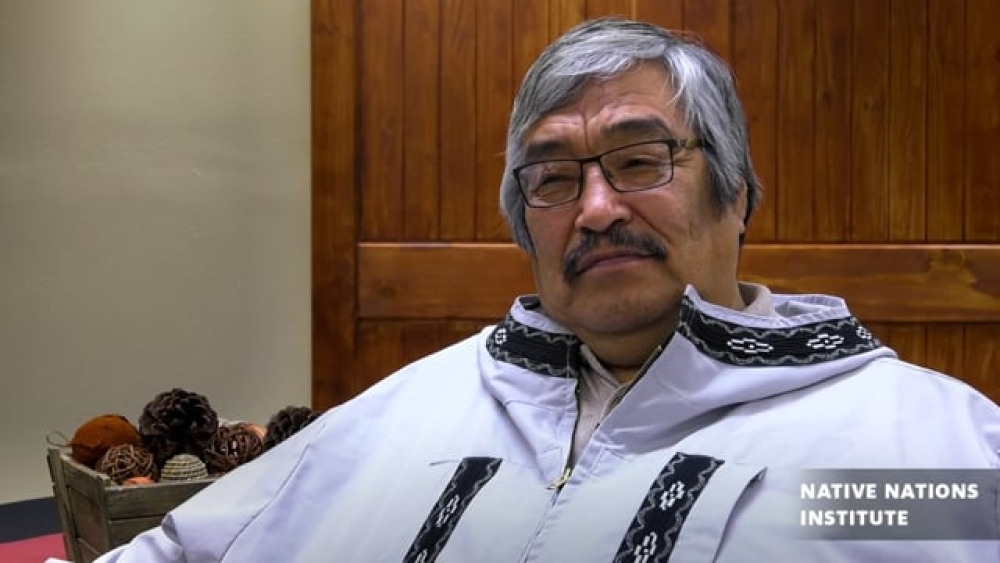
Mike Williams: Alaska Native governance and a healthy culture
Mike Williams is a well known indigenous leaders from being a Chairman and Vice-Chair of the Alaska Inter-Tribal Council as well as Chief of the Yupiit Nation. Mike offers his impressions about a variety of topics related indigenous governance including leadership, traditional governance,…
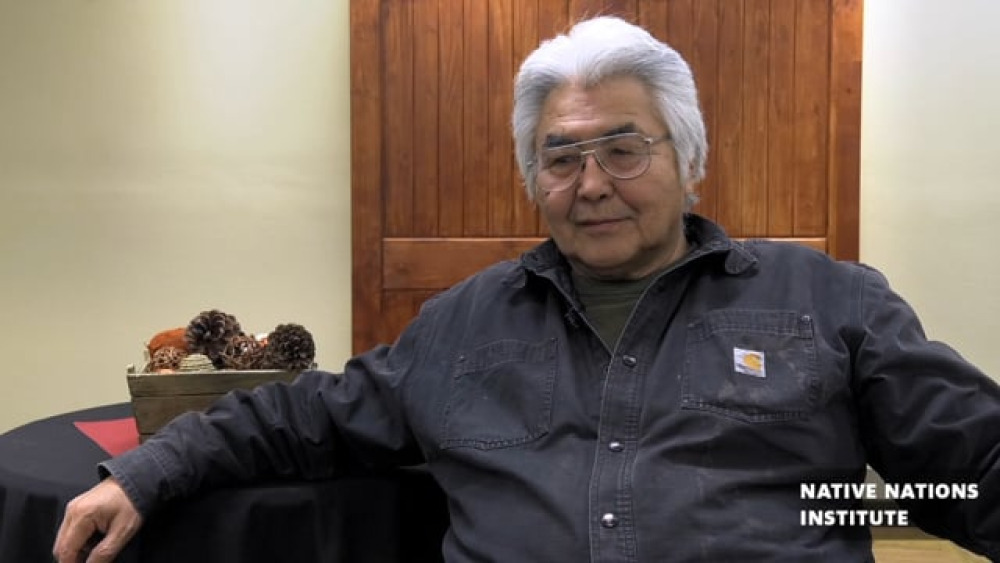
Wilson Justin: Leadership with Cultural Knowledge and Perseverance
Wilson Justin is a cultural ambassador for Cheesh’na Tribal council and serves as a Vice Chair Board of Directors for Mt. Sanford Tribal Consortium. He relays his expertise and perspective on the intricacies of Indigenous governance in Alaska through adapting cultural traditions, creating a…
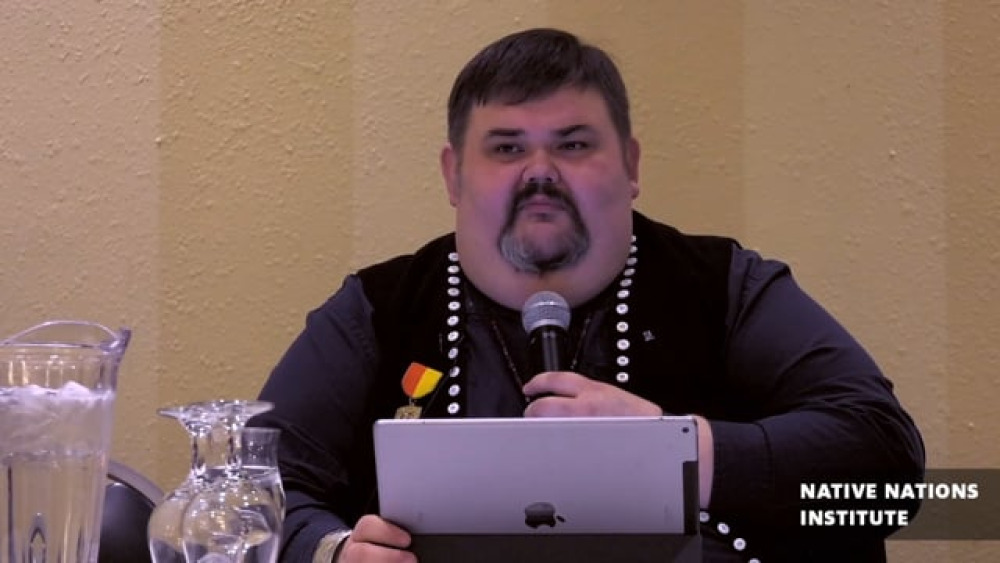
Richard Peterson: Leading in the Traditional Way Alaska Tribal Government Symposium
President, Central Council of the Tlingit and Haida Indian Tribes of Alaska Richard (Chalyee Eesh) Peterson is Tlingit from Kaagwaantaan clan. He gives his prespective on the ways tribal governement makes a presence in Alaska and the intergrating traditional knowledge and culture into tribal…
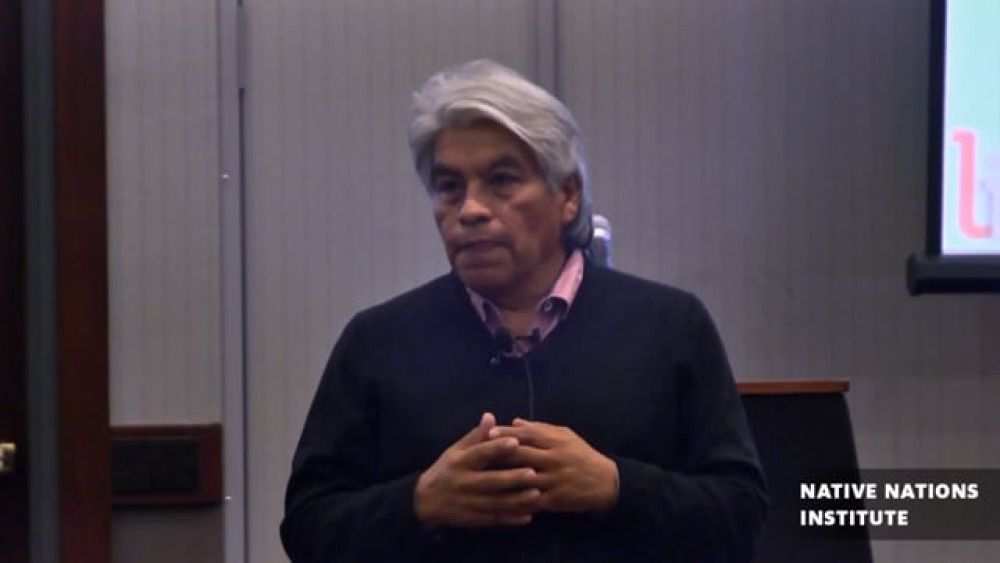
Regis Pecos: Resilience of Culture and Indigenous Heritage
Former Governor, Cochiti Pueblo Regis Pecos speaks to the Native Nation Rebuilders Cohort 2015. He highlights the strength of indigenous heritage and resilience of culture for Native nations to govern themselves.
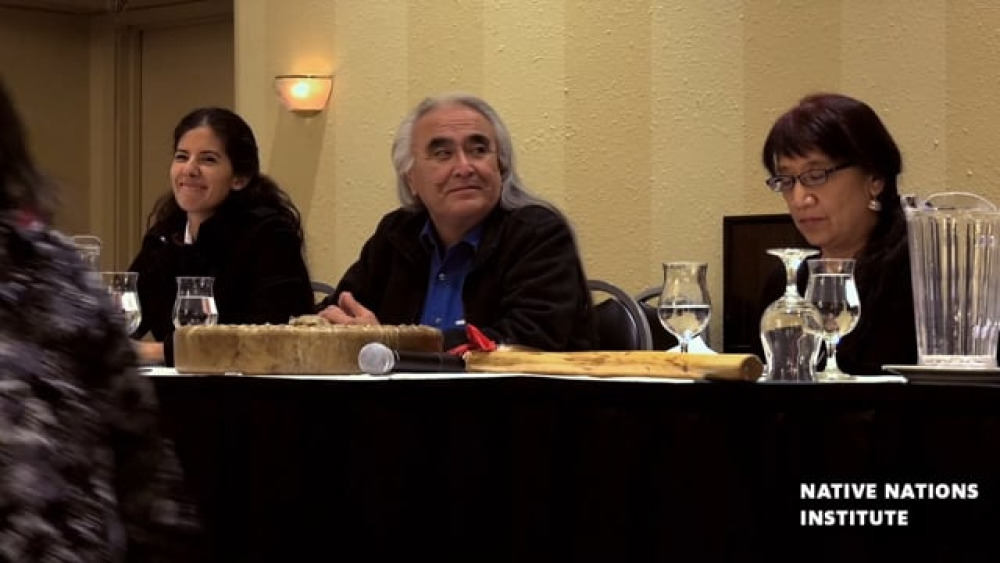
Governance and Wellness Roundtable - Alaska Tribal Government Symposium
This discussion at the Alaska Tribal Government Symposium emphasizes the connections between Indigenous self-government and wellness. Western methodologies are eager to emphasize the gaps in wellness (social, economic, and medical and mental health outcomes) between natives and non-natives.…
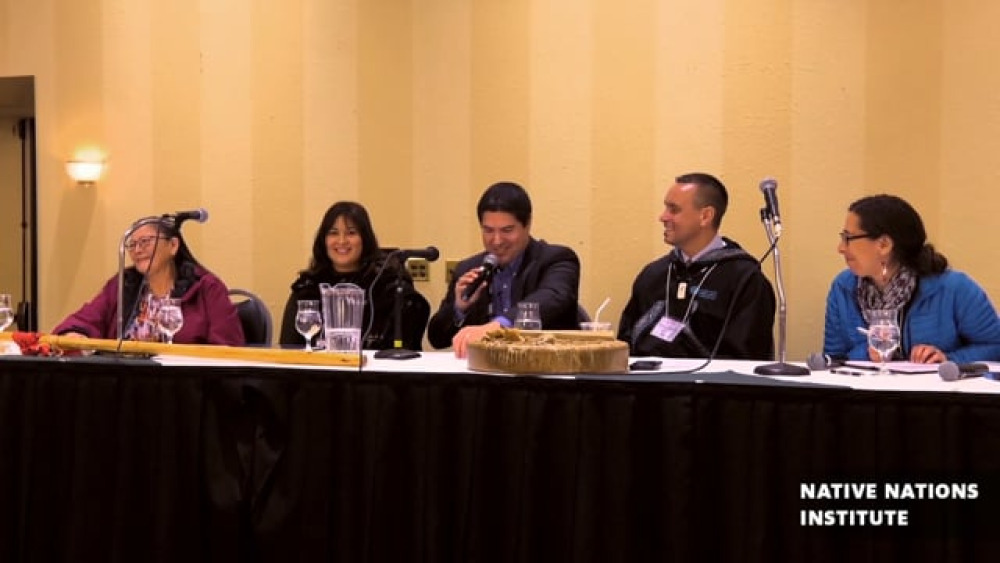
Indigenous Leadership Panel
What is going on in Alaska that exemplifies the success of Indigenous leaders? What are some Alaska tribes’ successful efforts to strengthen their governments and governance? Panelists share stories of success at asserting self-determination, building native governing institutions, reflecting…
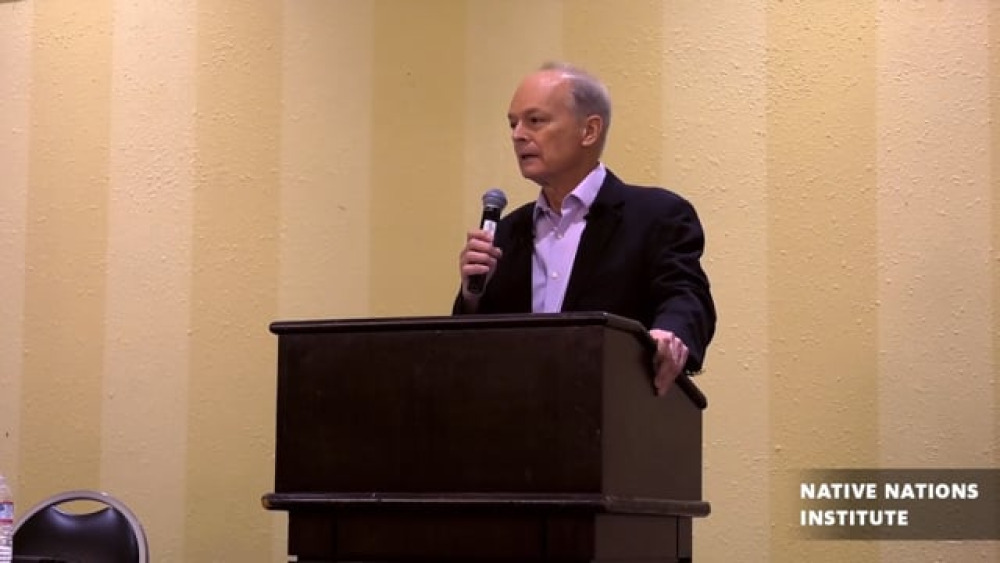
Stephen Cornell, Introduction to Native Nation Building, Alaska Tribal Government Symposium
An overview about Native nation building and the ability for Native communities in Alaska to rebuild their Native nations.
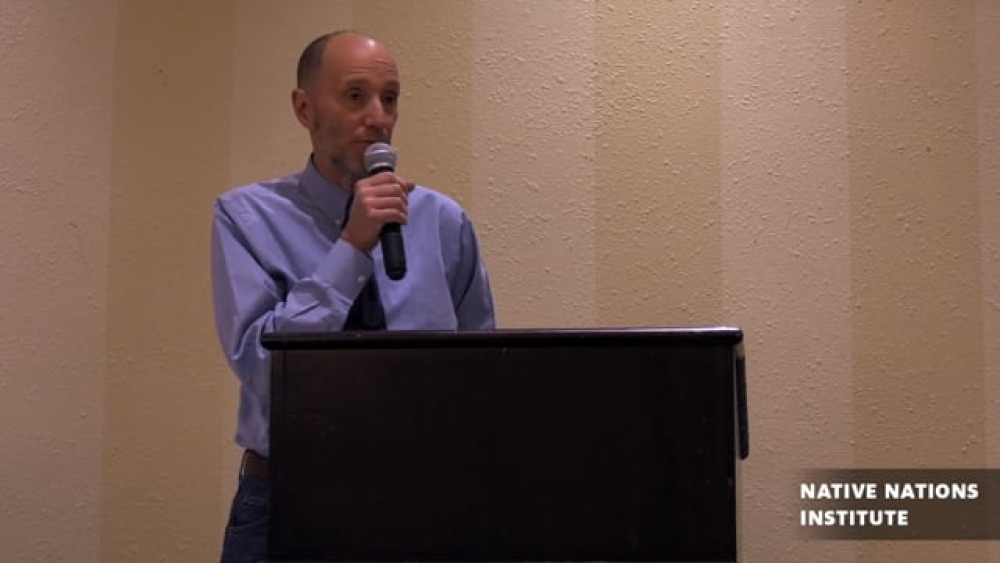
Jack Trope, Making the Indian Child Welfare Act Work: The Importance of Tribal Sovereignty
The expertise and knowledge about dealing with Alaska and Federal government entities in matters of child welfare are detailed with focus on asserting tribal sovereignty.
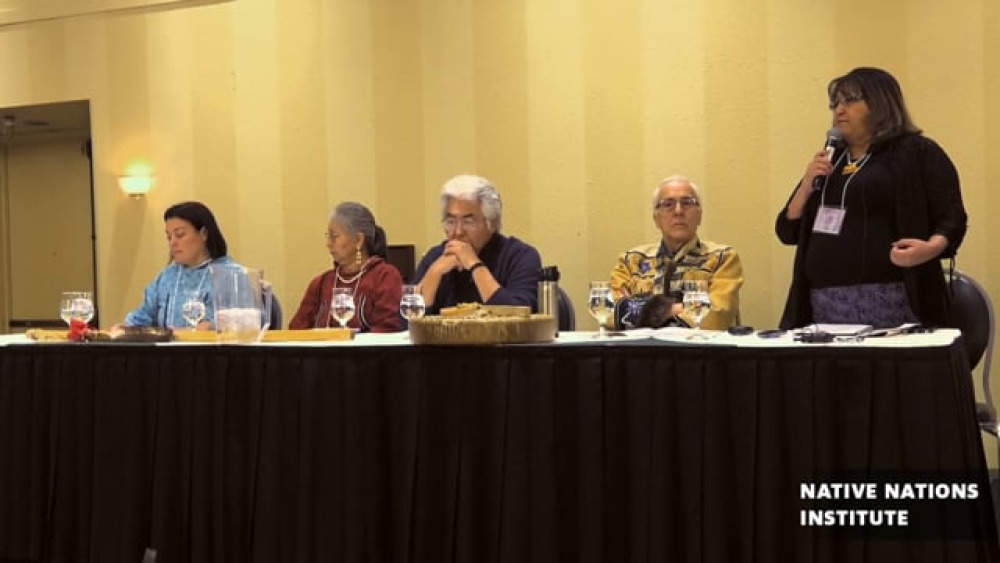
Roundtable: Traditional and Modern Governance and Decision Making in Alaska
A panel discussion with Native leaders in Alaska about the significance of tradition and culture that has influenced their Indigenous governance.
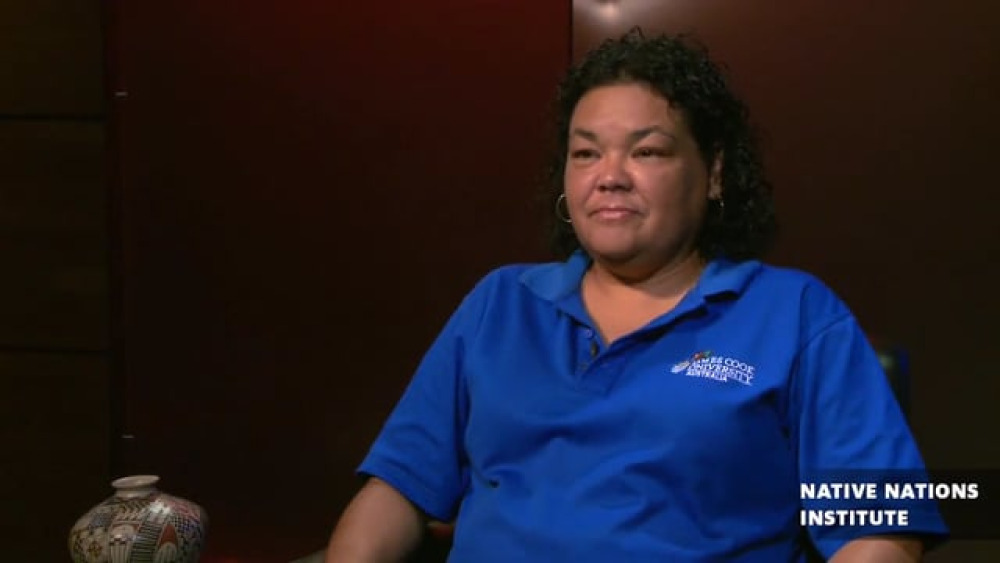
Michelle Deshong: Australian Aboriginal Methods of Self-Governance
Michelle Deshong draws her connections to Kuku Yalanji and Butchulla nations. She is a 2015 recipient of the Australian-American Fulbright Indigenous Professional Scholarship that funded her residency at the Native Nations Institute housed within the Udall Center for Studies and Public…
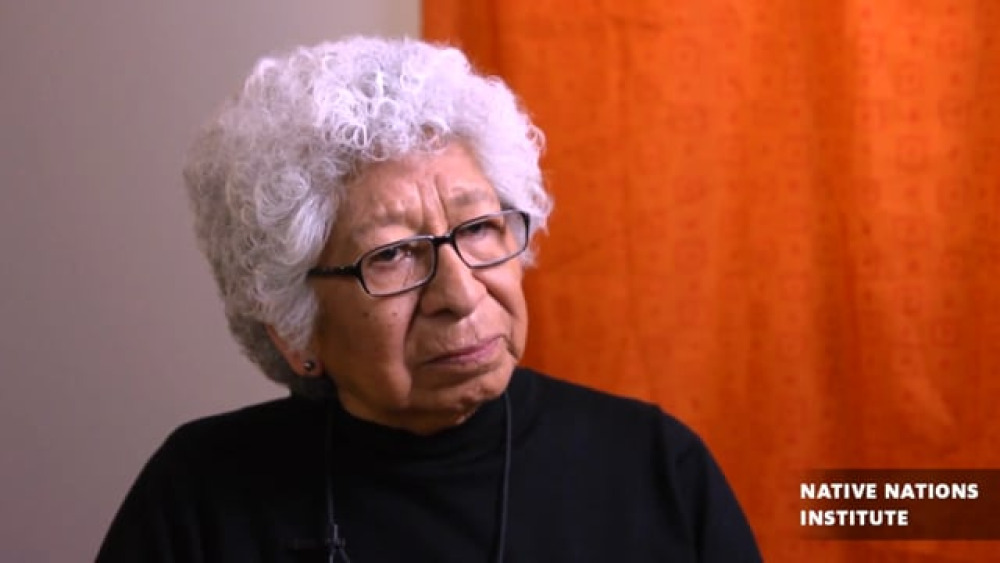
Verna Bailey: Making Self-Governance Work for Standing Rock
Former councilwoman Verna Bailey of the Standing Rock Sioux Tribe representing the Long Soldier District reveals the ins and outs of working with changes in a tribal council government. Her experiences offer insight into the history of self-governance for Standing Rock Sioux Tribe.
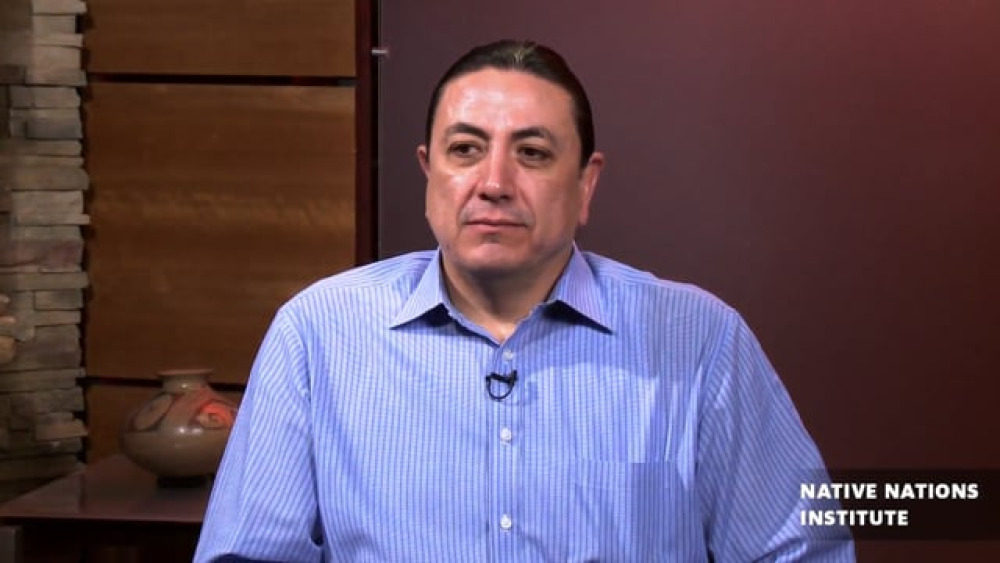
Chairman Dave Archambault II: Laying the Foundation for Tribal Leadership and Self-governance
Chairman Archambault’s wealth and breadth of knowledge and experience in the tribal labor and workforce development arena is unparalleled. He currently serves as the chief executive officer of one of the largest tribes in the Dakotas, leading 500 tribal government employees and overseeing an array…
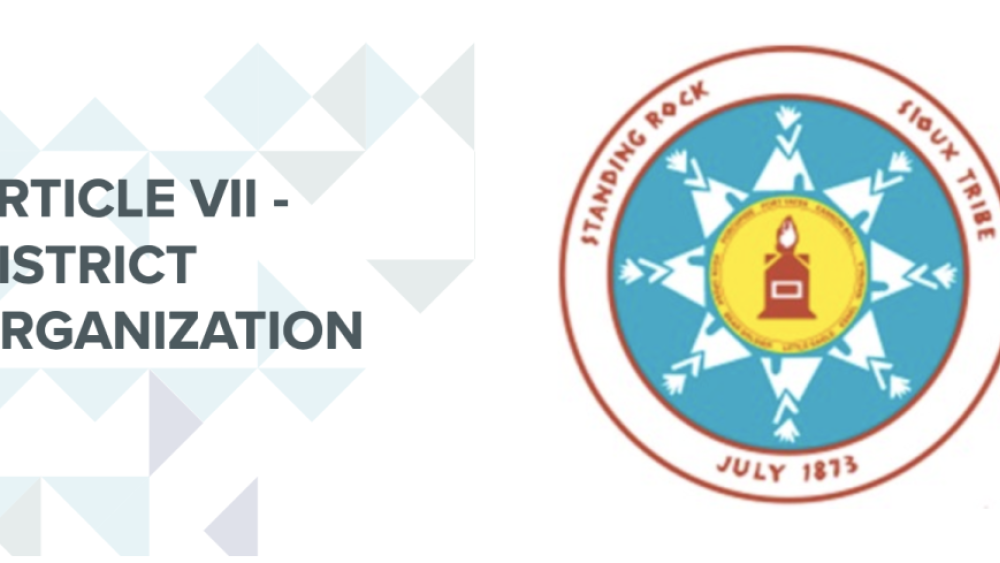
Standing Rock Sioux Tribe: Distribution of Authority Excerpt
ARTICLE VII - DISTRICT ORGANIZATION Each district recognized under Article III, Section 2, hereof, may organize local District Councils and elect District officers to consult, make recommendations and advise the Tribal Council, the Superintendent of the Reservation or officer in charge, and the…
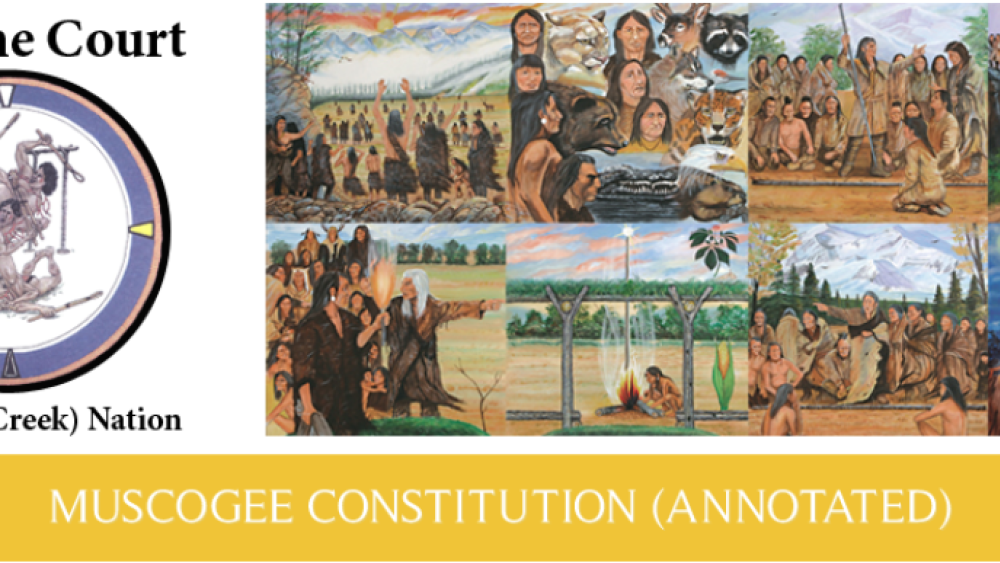
Muscogee (Creek) Nation: Legislative Functions Excerpt
ARTICLE VI - [Legislative Branch] Section 6. (a) Every bill which shall have passed the Muscogee (Creek) National Council, before it becomes ordinance, shall be presented to the Principal Chief of the Muscogee (Creek) Nation. If he approves, he shall sign it; but, if not, he shall return it…
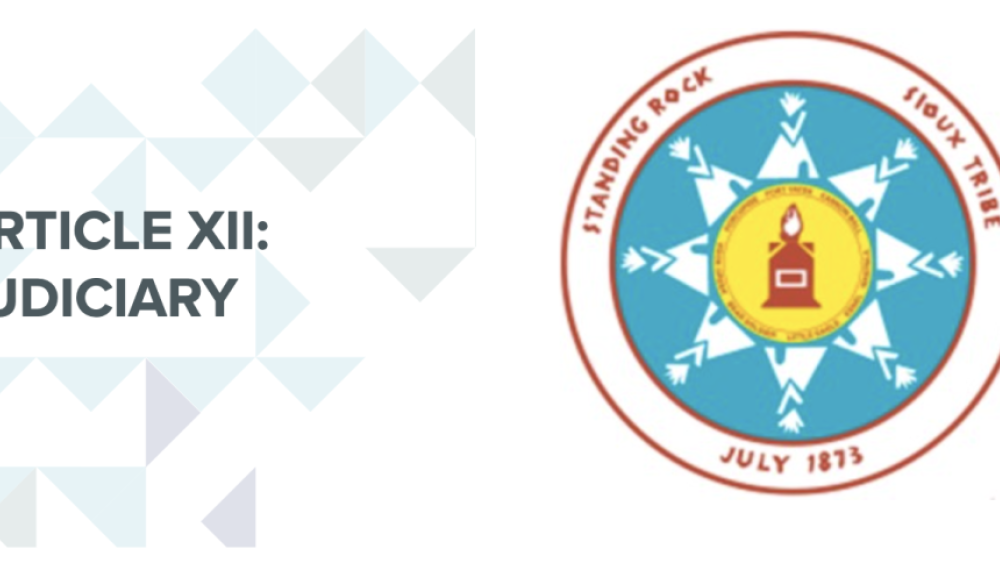
Standing Rock Sioux Tribe: Judiciary Functions/Dispute Resolution Excerpt
ARTICLE XII: JUDICIARY The judicial power of the Tribe shall be vested in one Supreme Court and one Tribal Court. The Judges of both the Supreme Court and the Tribal Court shall initially be appointed by a two-thirds majority vote of the Tribal Council to serve an initial term of…
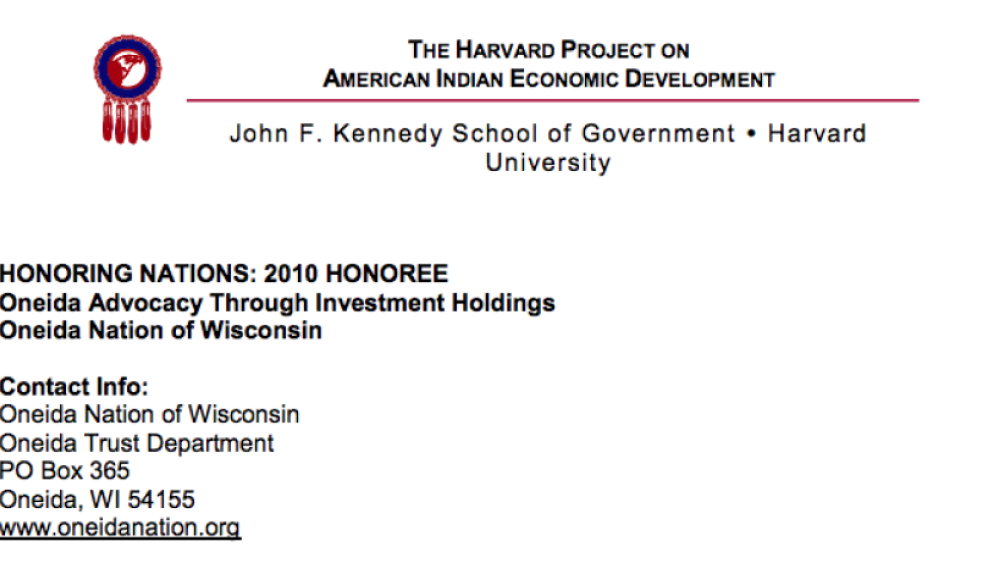
Oneida Advocacy Through Investment Holdings
Thirty years ago, most Native nations in the U.S. had few financial resources available for investment. With the passage of the Indian Self-Determination and Education Assistance Act (Public Law 93-638) in 1975, many tribes began to reclaim the governance of their nations – and with such assertions…
